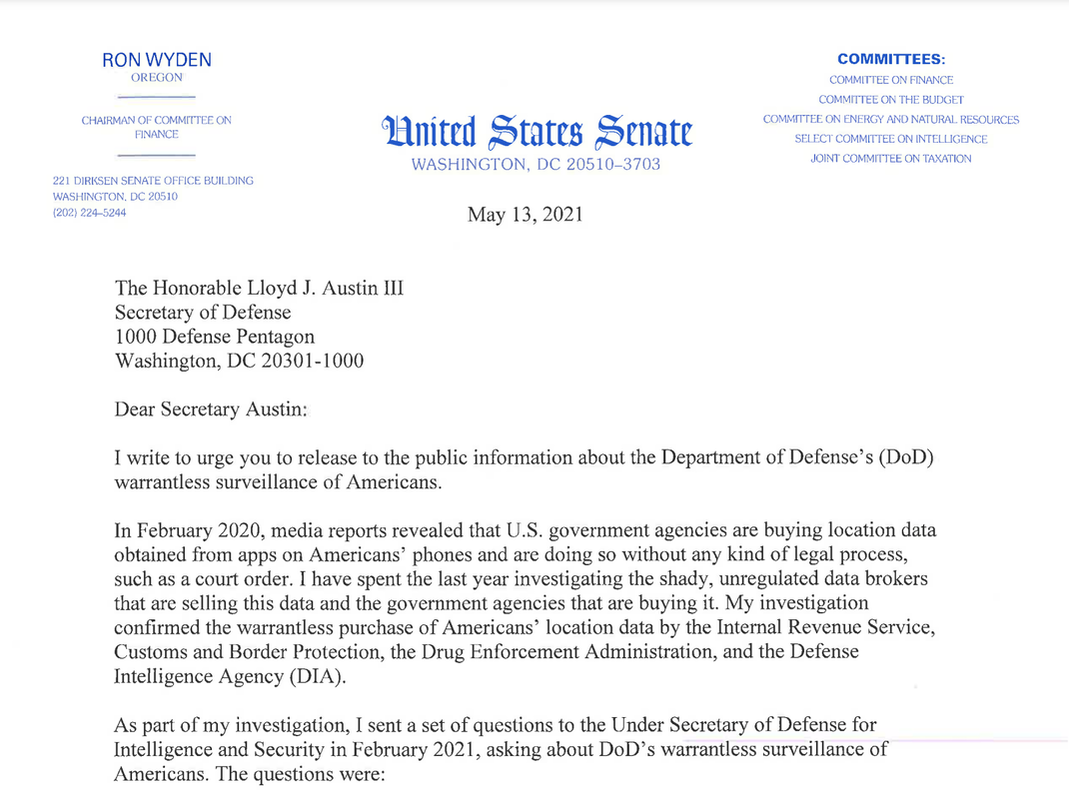|
A letter from Sen. Ron Wyden (D-OR) to Defense Secretary Lloyd Austin reveals that our government appears to be taking a warrantless and free-wheeling approach to purchasing Americans’ private data.
At first glance, this might come as an unexpected turn against the jurisprudential tide. In 2018, the U.S. Supreme Court held that the government needs a warrant to access the location history of an American taken from communications between cell phones and a cell tower. A reasonable interpretation of this case, Carpenter, should have prompted government lawyers to question any warrantless access to Americans’ electronic data. Like a flippant teenager, government lawyers – when presented with such a new restriction by the courts – take it as a sign that everything else must be permissible. You told me not to ride my bike in traffic. You never said anything about not smoking a cigarette. In his letter, Sen. Wyden wrote that the Defense Intelligence Agency “recently informed my office that they have adopted the position that the Fourth Amendment, and the Supreme Court’s holding in the Carpenter case, do not apply to data about Americans that government buys, and only apply to data that the government acquires via compulsion.” Sen. Wyden has long investigated the “shady, unregulated” sale of Americans’ personal information by data brokers to government agencies. He, along with Republican Sens. Rand Paul, Mike Lee, Steve Daines and several Democratic senators, recently introduced The Fourth Amendment Is Not for Sale Act, which would restrict the ability of the government to buy our personal information from data brokers without a warrant. Now Sen. Wyden is pressing the Department of Defense to answer questions about the legal analysis behind its theory, its scope of buying and using Americans’ data without a court order, and what the department knows – or doesn’t know – about the identities and citizenship of individuals whose data is being acquired. The Oregon senator is also drilling down to ask if the DoD is collecting information from internet connected cars and from metadata, such as Domain Name System records. The latter could expose an individual’s internet browsing history. As we await answers, civil liberties advocates have more reason than ever to get behind The Fourth Amendment Is Not For Sale Act. Comments are closed.
|
Categories
All
|


 RSS Feed
RSS Feed